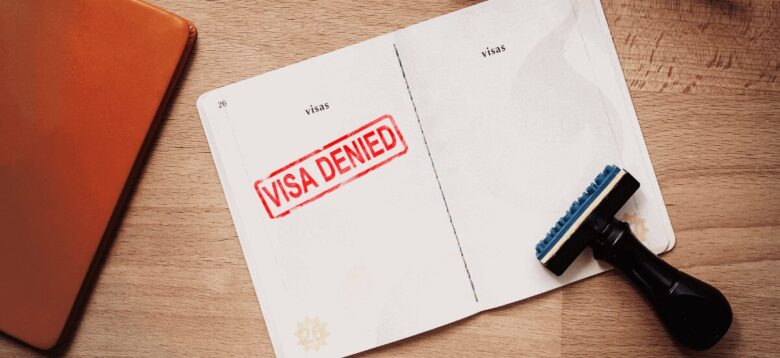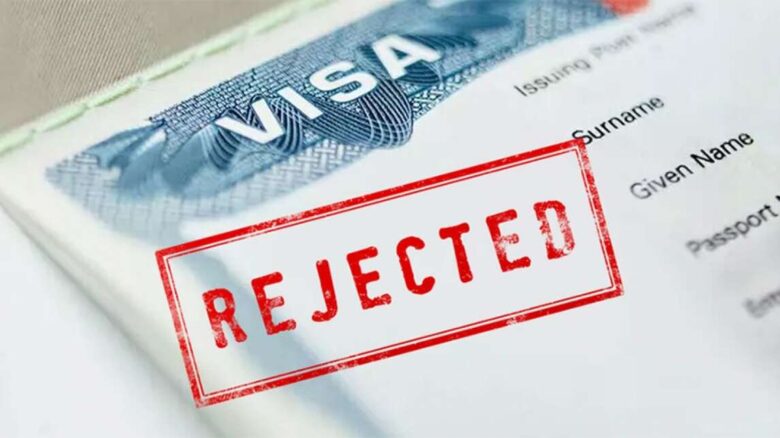Securing a UK visa is a significant milestone for individuals seeking to visit, study, work, or settle in the United Kingdom. However, the visa application process can be complex and demanding, and it sometimes results in a refusal. When faced with a UK visa refusal, it’s crucial to understand the reasons behind the decision and be aware of the appeal process. In this comprehensive article, we will delve into the intricacies of UK visa refusals and appeals, providing you with valuable insights on how to navigate this challenging journey.
Contents
Understanding UK Visa Refusals
A UK visa refusal can indeed be a disheartening experience, potentially disrupting your plans and dreams of visiting the United Kingdom. To better understand and navigate this challenging situation, let’s delve deeper into the common reasons for visa refusals and how to address them:

Source: acko.com
1. Incomplete or Incorrect Documentation:
One of the most frequent causes of visa refusals is the failure to provide complete and accurate documentation. To avoid this pitfall, meticulously review the visa requirements for your specific category and ensure that you submit all the necessary documents. Double-check each document for accuracy and completeness. It’s also advisable to organize your documents neatly and according to the application checklist provided by the UK authorities.
2. Financial Insufficiency:
Demonstrating that you have sufficient funds to support your stay in the UK is crucial. Make sure your financial evidence is clear, up-to-date, and aligns with the specific requirements outlined for your visa category. If you have sponsors, provide their financial documents and a sponsorship letter explaining their relationship to you and their willingness to support your visit.
3. Immigration History:
A history of breaching immigration rules, overstaying a previous visa, or having a record of visa refusals can raise red flags in the eyes of immigration authorities. If you have a complicated immigration history, consider seeking legal advice or guidance from an immigration expert before submitting a new application. Be honest and transparent about your past issues in your application and provide a clear and convincing explanation of how you have rectified any previous problems.

Source: pinterest.com
4. Purpose of Visit Unclear:
Your visa application should clearly and accurately reflect the purpose of your visit to the UK. Whether you’re visiting for tourism, business, study, or family reasons, ensure that your application aligns with the specific visa category you’re applying for. Provide comprehensive documentation that supports your intended purpose, such as an invitation letter for business meetings, enrollment letters for studies, or detailed itineraries for tourism.
5. Criminal Convictions:
Certain criminal convictions can be a significant hurdle in obtaining a UK visa, especially if your presence is deemed detrimental to the public good. It’s crucial to be forthright about any past convictions and provide full details in your application. Seeking legal advice in cases involving criminal convictions is highly recommended to understand the potential impact on your visa application.
6. Health Issues:
Serious health conditions can lead to a visa refusal if you cannot demonstrate that you have adequate healthcare arrangements in the UK. Ensure that you have comprehensive health insurance coverage for your entire stay, and provide documentation that proves your ability to manage your health condition while in the UK. A letter from a medical professional explaining your condition and treatment plan can also be beneficial.

Source: pinterest.com
The UK Visa Appeal Process
If your UK visa application is refused, you have the option to appeal the decision, provided that your application falls under certain categories. The UK visa refusal appeal process is a formal procedure that allows you to challenge the refusal decision.
- Identify Eligibility for Appeal: Not all visa refusals are eligible for appeal. You can appeal if you applied for a family or partner visa, a human rights or protection visa, or if your application for a European Economic Area (EEA) family permit was refused.
- Review the Refusal Letter: Carefully review the refusal letter to understand the reasons for the decision. This will help you prepare a strong case for your appeal.
- Complete the Appeal Form: Obtain the appropriate appeal form from the UK government website and complete it accurately. You’ll need to provide details about your case, the grounds for your appeal, and any additional evidence you wish to submit.
- Gather Supporting Evidence: Collect all relevant documents and evidence to support your case. This may include financial records, relationship documentation, or any other documents that address the reasons for refusal.
- Submit Your Appeal: Send your appeal form, along with the necessary documents, to the designated address provided in your refusal letter. Ensure that you meet the deadline for submission, which is typically within 14 or 28 days of receiving the refusal letter.
- Attend the Appeal Hearing: If your appeal is accepted, you will be notified of the date and location of your appeal hearing. It’s essential to attend the hearing in person, as this is your opportunity to present your case to an immigration judge.
- Await the Decision: Following the appeal hearing, you will receive a decision in writing. The judge will either allow or dismiss your appeal. If successful, your visa application will be reconsidered.
Seeking Legal Assistance
Navigating the UK visa appeal process can be challenging, and seeking legal assistance is often advisable. Immigration solicitors or advisors can provide invaluable support in preparing your case, ensuring that all necessary documents are submitted, and representing you at the appeal hearing.

Source: ziliak.com
Conclusion
Facing a UK visa refusal can be daunting, but it’s essential to approach it with a clear understanding of the reasons for refusal and the appeal process. By thoroughly reviewing your refusal letter, gathering supporting evidence, and seeking legal assistance when necessary, you can increase your chances of a successful appeal. Remember that each case is unique, and the outcome depends on the strength of your arguments and the evidence you present. With determination and proper preparation, you can navigate the complexities of UK visa refusals and appeals and work towards achieving your goal of visiting, studying, working, or settling in the United Kingdom.
